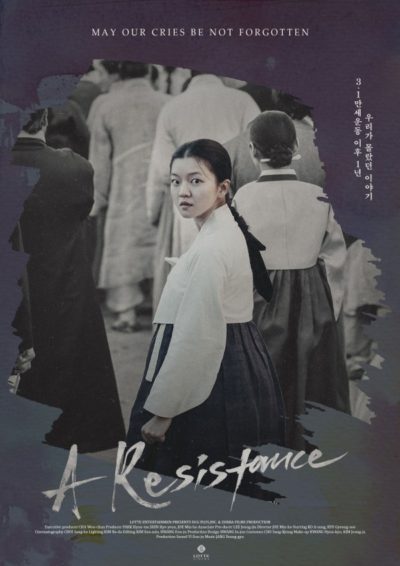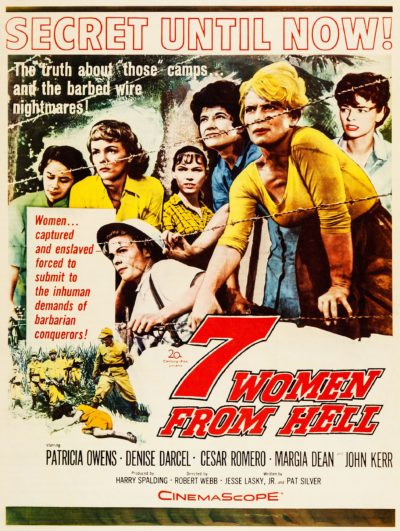Although this is the eighth book in the author’s trail-blazing (at the time it was written, action-oriented heroines were nowhere near as numerous in fiction as they are now) series, it’s the third that I’ve read. (Long story!) It was published in 1976; but in terms of the series’ internal chronology, just a few years have passed since the series opener. So in the book, it would still be the late 1960s, and protagonist Modesty is now about 28 years old. As is often the case, I would advise readers NOT to read the cover blurb. IMO, it discloses way too much information that’s better learned as O’Donnell chooses to gradually unfold it.
When the tale opens, we find Modesty and one of her (to use a contemporary term) “friends with benefits,” multimillionaire tycoon John Dall, enjoying a white-water canoeing excursion in the remote wilds of the Rocky Mountains, accompanied only by a 60-year-old Indian guide. It’s indicated that Dall would be glad to have a more committed relationship; but while Modesty has a lot of admirable qualities and makes a devoted friend, her hellish formative years left her with too damaged a psyche for committed romantic love. O’Donnell never made that any part of her character arc, so readers shouldn’t approach the books with that expectation (or hope!). Barely two pages into the story, though, their idyll is rudely interrupted by the appearance, seemingly out of nowhere, of two gun-toting thugs, who take the couple prisoner after brutally murdering their guide. This begins an adventure that will take us to more than one locale, but principally to the dense (and deftly-evoked) jungles of Guatemala, and which will involve mortal danger, intense mental and physical challenges, and a high body count.

An obvious question readers might ask is, does reading this out of order result in “spoilers” for the earlier books? I would say no, because Modesty’s adventures are each episodic and self-contained; and she and sidekick Willie don’t significantly change, either in their life circumstances or in terms of character growth. Some characters here do appear in earlier books: Sir Gerald Tarrant, for instance, is already introduced in the first book, and Steve and Dinah Collier are in the story
A Perfect Night to Break Your Neck, included in the story collection
Pieces of Modesty (which I did read previously), though that’s not their first appearance in the canon. The madman who calls himself (and actually believes that he is!) “Lucifer” is, I’m guessing, the title character of the third novel,
I, Lucifer, and both Dall and British spy Maude Tiller have also apparently shown up before.
But while having read about them earlier would make them more familiar, all of these were depicted here with enough clarity and depth that I felt I knew them fully well as people. And while occasional references are made to previous adventures, the significance is explained in each case, and for me the effect was simply to whet curiosity, not spoil it. (Of course, it’s clear that Modesty emerged from these triumphant; but that’s a “spoiler” only if you don’t grasp the idea of the word “series….” :-) ) I’d recommend reading the first book before this one, to get a basic idea of who Modesty is, what her early life was like, and the Modesty-Willie dynamic; but otherwise, I don’t think it’s essential to read the earlier books first.
In terms of style and literary vision, this book felt, to me, very much of a piece with the two I’d read earlier. While he doesn’t write with the elaborate diction of his 18th-century Romantic predecessors, O’Donnell’s solidly in their literary camp with his use of exotic locales, extreme situations, and above all, frank appeals to the whole range of readers’ emotions. (In one revealing exchange, Dall tells Modesty she’s a “romantic,” whereupon she replies, “Of course I’m a romantic, dum-dum! And proud of it. There’s not enough of it about these days.”) His plotting is taut and well-constructed, with a good deal of suspense, a steady pace interspersed with frequent jeopardies and vivid action scenes. Modesty has to display her planning acuity and ingenuity as well as her fighting skill; and surviving and taking down the baddies here won’t be a cake-walk, since while she’s highly competent and a born leader, she’s not Superwoman. On the contrary, she’s very much a flesh-and-blood woman, who can bleed and cry (though she doesn’t like to do the latter in front of others); and she’ll do both before we close the book.
In contrast to the cynicism of much modern literature, despite the gritty milieu we find ourselves in here, O’Donnell’s vision is a solidly moral one. Our heroine (and Modesty is a heroine, not an anti-heroine) is pitted against villains who are radically evil, and while she, Willie and their friends have foibles, they basically have a solid and instinctive orientation towards the good. And O’Donnell knows that the basic dividing line between the two separates those who care about others and try to treat them decently, vs. those who care only about self and consider all other humans as things to be used. The author’s social message here isn’t loudly delivered; but we do get a clear look at both the misery the downtrodden in the Third World have suffered (and still do), and the reality that a fixation on vengeance rather than justice can make the oppressed a mirror image of the oppressors.
Content issues here aren’t too problematic, given the literary genre that this is. There’s some swearing and religious profanity (but no obscenity). There are no sex scenes, but there is reference to sexual activity, and it’s made clear that two of the principal villains are into kinky sex that involves inflicting extreme humiliation on women (though O’Donnell spares us any specifics). That such behavior exists in the world should (and does!) offend every decent human; that it’s depicted at all in a book will offend some readers. In the author’s defense on that score, I would say only that a mentality which freaks out on wielding power over other humans is realistically apt to also be reflected in warped sexuality; it warps every aspect of the personality. The language and sexual attitudes/behavior of most of the characters here are what would realistically be expected of secular folk who move in these kinds of circles. Indeed, while some readers would roll their eyes over using the term here, because of the unusual and extreme situation (“unusual,” though, is not the same thing as “impossible!”), I would say that O”Donnell depicts a wide range of life-like characters with very convincing realism, and that his characterizations are a strong point of the series.
Again, I’d recommend reading the series opener before reading this installment; but otherwise, I’d have no hesitation in recommending it to any reader who enjoyed the first book.
Author: Peter O’Donnell
Publisher: Souvenir Press; available
through Amazon, currently only as a printed book.
A version of this review previously appeared on Goodreads.
 I guess, at its heart, this is the story of two mothers. There’s Jo (Campbell-Hughes), an anaesthetist who has been struck off the medical register, for reasons that are left murky. She’s now practicing her healing arts on the underground market, from patching up dubious stabbing victims, to carrying out unlicensed abortions. Jo lost her daughter to meningitis, and has split from her husband. Then there’s Bernadette (Brady), a wealthy but no less murky character. Her daughter is dying, and in desperate need of a transplant. To that end, Bernadette has kidnapped a young woman, Aine (McNulty), with the intention of using her as an unwilling organ donor, and needs Jo’s help for the operation. But when Aine – who would be about the age of Jo’s daughter had she lived – escapes and hides in the back of the physician’s car, Jo is left with a series of difficult decisions.
I guess, at its heart, this is the story of two mothers. There’s Jo (Campbell-Hughes), an anaesthetist who has been struck off the medical register, for reasons that are left murky. She’s now practicing her healing arts on the underground market, from patching up dubious stabbing victims, to carrying out unlicensed abortions. Jo lost her daughter to meningitis, and has split from her husband. Then there’s Bernadette (Brady), a wealthy but no less murky character. Her daughter is dying, and in desperate need of a transplant. To that end, Bernadette has kidnapped a young woman, Aine (McNulty), with the intention of using her as an unwilling organ donor, and needs Jo’s help for the operation. But when Aine – who would be about the age of Jo’s daughter had she lived – escapes and hides in the back of the physician’s car, Jo is left with a series of difficult decisions.




 I’ve previously talked about – OK, “ranted” may not be inappropriate – the perils of message movies. But I did wonder whether it was the specific content to which I objected. Would I dislike a film so much, if I was on board with its strident message? On the evidence here, I can confidently state: hell, yes. For this is painfully earnest and hard to watch, much though I agree with the environmental topic, that humanity’s use of plastics are threatening the oceans. An alternative needs to be found. By which I mean, I strongly suggest you find an alternative to watching this movie. The poster has clearly strayed in from a far more entertaining offering, and bears little resemblance to what this provides.
I’ve previously talked about – OK, “ranted” may not be inappropriate – the perils of message movies. But I did wonder whether it was the specific content to which I objected. Would I dislike a film so much, if I was on board with its strident message? On the evidence here, I can confidently state: hell, yes. For this is painfully earnest and hard to watch, much though I agree with the environmental topic, that humanity’s use of plastics are threatening the oceans. An alternative needs to be found. By which I mean, I strongly suggest you find an alternative to watching this movie. The poster has clearly strayed in from a far more entertaining offering, and bears little resemblance to what this provides.  Subtitled, The Female Hero in Popular Cinema, 1970-2006, this is non-fiction, being a feminist – I guess, more post-feminist – analysis of action heroines over the time in question. It made for an interesting read, being considerably more dense than my typical reading material: Schubert seems to be aiming at an audience that already know what she means, with a good number of terms left unexplained in the text. Yet it was equally frustrating: for every section that had me nodding in agreement, there was one where I was at least raising an eyebrow, if not snorting derisively.Parts are incisive and smart. Others exemplify the worst excesses of ivory-tower academia.
Subtitled, The Female Hero in Popular Cinema, 1970-2006, this is non-fiction, being a feminist – I guess, more post-feminist – analysis of action heroines over the time in question. It made for an interesting read, being considerably more dense than my typical reading material: Schubert seems to be aiming at an audience that already know what she means, with a good number of terms left unexplained in the text. Yet it was equally frustrating: for every section that had me nodding in agreement, there was one where I was at least raising an eyebrow, if not snorting derisively.Parts are incisive and smart. Others exemplify the worst excesses of ivory-tower academia. This takes place in 1919-20, when Korea was under occupation by the Japanese [there seems to be quite a lot of this about; I’ve seen a bunch of Chinese movies set when that country was occupied by Japan as well]. Even demonstrating against the Japanese, or in favour of Korean independence, was sternly forbidden, with those taking part likely to be arrested and thrown in prison for months. If they were lucky, that is: an opening caption tells us 7,500 were killed in the protests or died in jail subsequently. Even for those merely arrested, this was not a “nice” prison, to put it mildly, with horrendously over-crowded conditions (24 to a cell!), freezing temperatures and meagre rations.
This takes place in 1919-20, when Korea was under occupation by the Japanese [there seems to be quite a lot of this about; I’ve seen a bunch of Chinese movies set when that country was occupied by Japan as well]. Even demonstrating against the Japanese, or in favour of Korean independence, was sternly forbidden, with those taking part likely to be arrested and thrown in prison for months. If they were lucky, that is: an opening caption tells us 7,500 were killed in the protests or died in jail subsequently. Even for those merely arrested, this was not a “nice” prison, to put it mildly, with horrendously over-crowded conditions (24 to a cell!), freezing temperatures and meagre rations. If the title is more than a bit blunt, it’s certainly accurate. May Lin (Cheng) is a brash hooker, who runs a sideline in blackmail videos with her flatmate, Nana. But one night she comes home to find Nana near death, the victim of a brutal client. She tells the police about the video, but before she can give it to them, the perpetrator – rich and influential politician, Kao Tien Chin (Cho) – sends an army of beige trenchcoat wearing killers to take care of both Nana and May. The former succumbs, but the latter escapes and goes on the run. With the police force apparently leaking like a sieve and the case being shut down from on high, prosecutor Yin Li Shan sends his niece, Nancy Cheng (Mishiwaki), to link up with May and bring her in. But they’ll have to get past the trenchcoat mafia, among other threats, for there to be any hope of justice.
If the title is more than a bit blunt, it’s certainly accurate. May Lin (Cheng) is a brash hooker, who runs a sideline in blackmail videos with her flatmate, Nana. But one night she comes home to find Nana near death, the victim of a brutal client. She tells the police about the video, but before she can give it to them, the perpetrator – rich and influential politician, Kao Tien Chin (Cho) – sends an army of beige trenchcoat wearing killers to take care of both Nana and May. The former succumbs, but the latter escapes and goes on the run. With the police force apparently leaking like a sieve and the case being shut down from on high, prosecutor Yin Li Shan sends his niece, Nancy Cheng (Mishiwaki), to link up with May and bring her in. But they’ll have to get past the trenchcoat mafia, among other threats, for there to be any hope of justice. I kept moving between 2½ and 3 stars for this. It is pretty chatty, and the focus is not as much on the title character as I might have hoped. But there’s no denying that Leng (Shi) is a very solid character, and when she gets her chances to shine, does so in a memorable fashion. This is nowhere better illustrated than her final battle, where she takes on an enemy – who just tried to molest Leng, believing her drugged – while they both balance on a tight-rope. There’s no particular reason for the fight to take place in such an environment. The ground would have been perfectly fine. But it adds an extra dimension, and the way it’s filmed makes it feel surprisingly possible that they were wobbling about up there.
I kept moving between 2½ and 3 stars for this. It is pretty chatty, and the focus is not as much on the title character as I might have hoped. But there’s no denying that Leng (Shi) is a very solid character, and when she gets her chances to shine, does so in a memorable fashion. This is nowhere better illustrated than her final battle, where she takes on an enemy – who just tried to molest Leng, believing her drugged – while they both balance on a tight-rope. There’s no particular reason for the fight to take place in such an environment. The ground would have been perfectly fine. But it adds an extra dimension, and the way it’s filmed makes it feel surprisingly possible that they were wobbling about up there. Yeah, I think if I’d seen this under the alternate title of On the Waterfront, I might well have passed it by. Though that is probably a slightly more accurate description of the contents here, even allowing for the complete absence of Marlon Brando. [At least we didn’t have to deal with the expectations set by the Italian title, which translates as “The merciless hand of Bruce Lee strikes again”!] It takes place around the Whampoa wharves in Shanghai, where various crime families are jostling for position and control, with varying degrees of morality e.g. whether or not they approve of drugs and/or sex trafficking as a means to make money. Particularly of note here are Red Rose (Tang) and Zhou (Chang), who eventually end up allies against their common enemy (Chen).
Yeah, I think if I’d seen this under the alternate title of On the Waterfront, I might well have passed it by. Though that is probably a slightly more accurate description of the contents here, even allowing for the complete absence of Marlon Brando. [At least we didn’t have to deal with the expectations set by the Italian title, which translates as “The merciless hand of Bruce Lee strikes again”!] It takes place around the Whampoa wharves in Shanghai, where various crime families are jostling for position and control, with varying degrees of morality e.g. whether or not they approve of drugs and/or sex trafficking as a means to make money. Particularly of note here are Red Rose (Tang) and Zhou (Chang), who eventually end up allies against their common enemy (Chen). The latest entry in the Predator franchise has resulted in sharply divided opinions, partly for reasons that I’m not even going to get into. And, for roughly the 11th millionth time, the reality lies somewhere in the middle. It is probably the best entry in the franchise since Predator 2. However, let’s be clear: Sharktopus vs. Whalewolf would also satisfy that criteria. So, let’s dig in. The year is 1719, and the Northern Plains see a new arrival, in the form of an extraterrestrial visitor, looking to test its mettle against any species unlucky enough to cross its path. They could be animal, or human – the latter include both French trappers and the local Comanches.
The latest entry in the Predator franchise has resulted in sharply divided opinions, partly for reasons that I’m not even going to get into. And, for roughly the 11th millionth time, the reality lies somewhere in the middle. It is probably the best entry in the franchise since Predator 2. However, let’s be clear: Sharktopus vs. Whalewolf would also satisfy that criteria. So, let’s dig in. The year is 1719, and the Northern Plains see a new arrival, in the form of an extraterrestrial visitor, looking to test its mettle against any species unlucky enough to cross its path. They could be animal, or human – the latter include both French trappers and the local Comanches. An obvious question readers might ask is, does reading this out of order result in “spoilers” for the earlier books? I would say no, because Modesty’s adventures are each episodic and self-contained; and she and sidekick Willie don’t significantly change, either in their life circumstances or in terms of character growth. Some characters here do appear in earlier books: Sir Gerald Tarrant, for instance, is already introduced in the first book, and Steve and Dinah Collier are in the story A Perfect Night to Break Your Neck, included in the story collection
An obvious question readers might ask is, does reading this out of order result in “spoilers” for the earlier books? I would say no, because Modesty’s adventures are each episodic and self-contained; and she and sidekick Willie don’t significantly change, either in their life circumstances or in terms of character growth. Some characters here do appear in earlier books: Sir Gerald Tarrant, for instance, is already introduced in the first book, and Steve and Dinah Collier are in the story A Perfect Night to Break Your Neck, included in the story collection  About the only review online I found for this, said it “may be the worst movie released in 1961.” I can only presume the writer of that statement has never seen The Beast of Yucca Flats. Even if I admit its weaknesses, Seven is nowhere near the same league of badness. Indeed, it starts off well, depicting the sudden invasion of Papua New Guinea by Japanese forces in 1942, with “enemy” civilians being herded into interment camps. The ones on the women’s side are a multi-national bunch, including Australian Grace Ingram (Owens), several Americans including Janet Cook (Craig), a German widow Ann Van Laer (Sylvia Daneel), Frenchwoman Claire Oudry (Darcel), and mixed-race nurse Mai-Lu Ferguson (Pilar Seurat).
About the only review online I found for this, said it “may be the worst movie released in 1961.” I can only presume the writer of that statement has never seen The Beast of Yucca Flats. Even if I admit its weaknesses, Seven is nowhere near the same league of badness. Indeed, it starts off well, depicting the sudden invasion of Papua New Guinea by Japanese forces in 1942, with “enemy” civilians being herded into interment camps. The ones on the women’s side are a multi-national bunch, including Australian Grace Ingram (Owens), several Americans including Janet Cook (Craig), a German widow Ann Van Laer (Sylvia Daneel), Frenchwoman Claire Oudry (Darcel), and mixed-race nurse Mai-Lu Ferguson (Pilar Seurat).